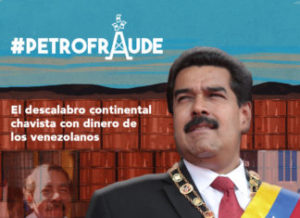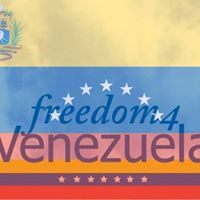For the third time this year, the big moment in Venezuela has turned into a bust, AP reports:
Trump administration officials had expected that Wednesday might turn out to be the beginning of the end for President Nicolas Maduro with senior government figures withdrawing support and the opposition launching a mass uprising with military backing.
This week, administration officials were told the defense minister, the president of the supreme court, the head of the presidential guard and others would formally announce that they supported the Venezuelan constitution, implicitly backing the opposition, said Elliott Abrams, the special U.S. envoy for Venezuela.
It was “widely understood,” Abrams told reporters at the State Department, there would be huge May Day marches and Guaido and his supporters hoped they “would lead peacefully to the end of the Maduro regime.”
But Venezuelans are expected to take to the streets on May Day for what opposition leader Guaido pledged would be the “largest march” in the country’s history.
Maduro retains power and support from country’s military top brass but the opposition challenge is not dead, The Guardian adds.
 “Clearly this was a failure in the sense that this left the opposition weaker than they were before,” said David Smilde, a Venezuela expert from the Washington Office on Latin America advocacy group.
“Clearly this was a failure in the sense that this left the opposition weaker than they were before,” said David Smilde, a Venezuela expert from the Washington Office on Latin America advocacy group.
Giancarlo Morelli of the British analysis group Economist Intelligence Unit said Maduro faces peril whatever path he takes, AP adds.
“Failing to arrest Mr. Guaido would be perceived as an important sign for weakness from Mr. Maduro,” Morelli said. “But arresting Mr. Guaido risks a strong counter-reaction from the U.S.,” which has been ratcheting up sanctions.
Heritage Foundation senior policy analyst Ana Quintana* said it’s time for Canada and E.U. allies to step up their pressure on Maduro.
“It’s too soon to say, but certainly the initial move by the opposition did not seem to materialize the strong military support they would have needed,” said Stanford University’s Harold Trinkunas, an expert on the Venezuelan military.
 Benjamin Gedan, the national security council’s Venezuela adviser during the Obama presidency, said Guaidó had envisioned mass defections from Venezuela’s intelligence services and military. ”Neither occurred,” he admitted.
Benjamin Gedan, the national security council’s Venezuela adviser during the Obama presidency, said Guaidó had envisioned mass defections from Venezuela’s intelligence services and military. ”Neither occurred,” he admitted.
“Dislodging a dictatorship that controls all the territory and monopolizes the use of force is difficult … But transitions often come unexpectedly and unexpectedly fast,” Gedan said, pointing to the recent uprisings in Sudan and Algeria.
“I’m not going to predict that tomorrow the regime will fall. But I don’t see signals that Maduro is particularly confident in his hold on power,” Gedan added. “There is no evidence the government has a firm hold on the country … I’m not persuaded Maduro sleeps well at night.”
The US threatened a “full and complete embargo” on Cuba if it does not stop immediately military operations in Venezuela (HT: Center for a Free Cuba).
Some analysts think that two heavyweight countries might be coming to some kind of deal over Maduro’s potential departure, CNBC reports.
”(There’s) little doubt in my mind that the Russians and the U.S. have been talking for weeks about some kind of deal to ease Maduro out of office,” Timothy Ash, a senior emerging markets strategist at Bluebay Asset Management, said in a note Wednesday.
 Tulane University professor Smilde said it’s possible that Guaido made his announcement earlier than expected, perhaps spooked by rumors of his imminent arrest, The Post adds.
Tulane University professor Smilde said it’s possible that Guaido made his announcement earlier than expected, perhaps spooked by rumors of his imminent arrest, The Post adds.
“The entire episode should lead to a round of reflection within the opposition and their supporters in the U.S. government regarding how to address this crisis,” Smilde said. “It is clear the pressure-collapse scenario they have been working with has run its course.”
As Venezuela implodes beneath an oppressive socialist regime, one democratically elected mayor turned dissident is fighting back against the dictator and standing up for the Venezuelan people (below).
*A former Penn Kemble fellow at the National Endowment for Democracy.







